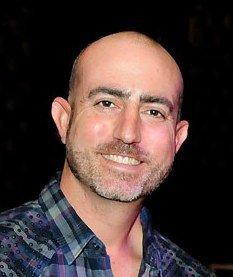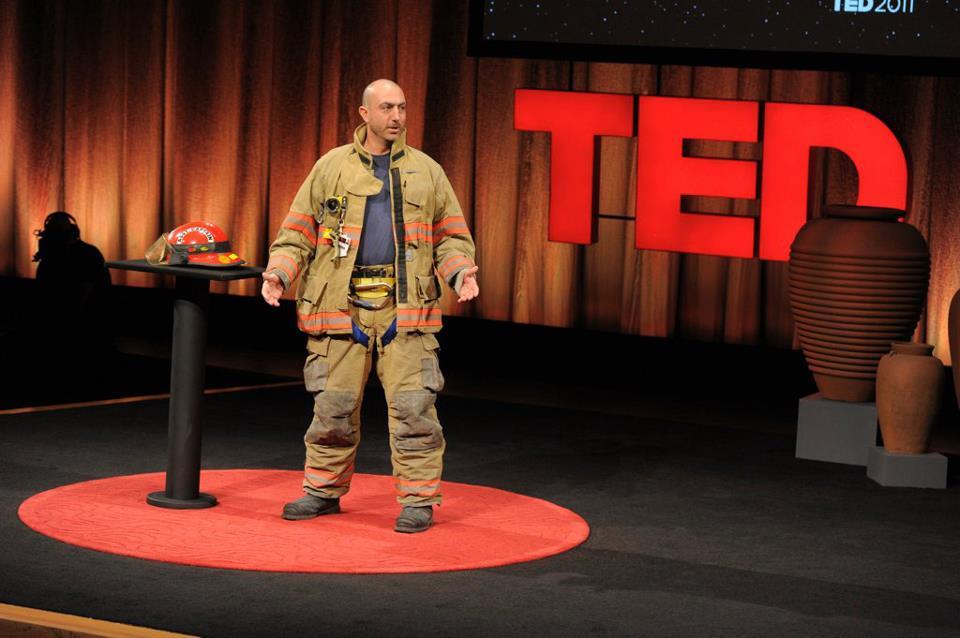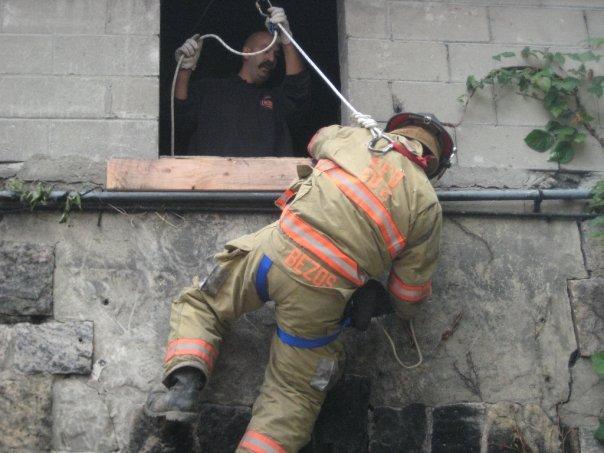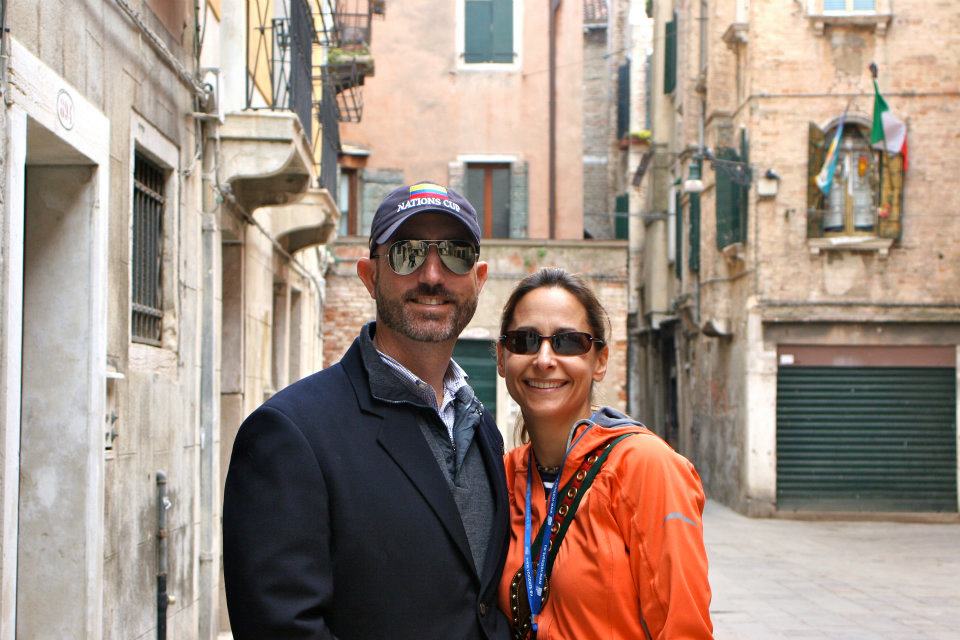There's Nothing More Rewarding than Giving Back: Meet Scarsdale's Mark Bezos
- Thursday, 14 March 2013 12:35
- Last Updated: Thursday, 14 March 2013 12:53
- Published: Thursday, 14 March 2013 12:35
- Hits: 17212
 Scarsdale resident Mark Bezos has been selected to receive the "Open Door Award for Community Service" at this year's Gourmet Galaxy fundraiser on May 1 at the Westchester Country Club. To learn more about our exceptional neighbor we asked Mark some questions about his work at the Robin Hood Foundation and why giving back can be personally rewarding. Here is what he shared:
Scarsdale resident Mark Bezos has been selected to receive the "Open Door Award for Community Service" at this year's Gourmet Galaxy fundraiser on May 1 at the Westchester Country Club. To learn more about our exceptional neighbor we asked Mark some questions about his work at the Robin Hood Foundation and why giving back can be personally rewarding. Here is what he shared:
When did you start your work at the Robin Hood Foundation and what did you do before?
I joined Robin Hood as the Managing Director of Communications and Marketing in the fall of 2006. Prior to coming to Robin Hood I had a career in advertising, working at a number of Madison Avenue agencies. In 1999, I started my own agency which I sold early in 2006. At that point I wasn't quite sure where I wanted to focus my efforts until Robin Hood came calling. I'm currently the SVP, Communications, Marketing and Events. I feel very lucky to have found a way to use my marketing and communication skills to try and make the world a better place.
In your experience, what are the big differences in transitioning from the for-profit to the  non-profit world?
non-profit world?
I found the transition to be quite natural. I think that's because Robin Hood is run so much like a for-profit business. We approach our grant making in much the same way that one might approach making an investment in a for-profit company. We perform due diligence on every group and its leadership; every grant comes with a contract that outlines performance measures for success and we hold our community partners accountable for delivering on those results. Our mission - to fight poverty in New York City - forces us to operate with a sustained sense of urgency. Every night 20,000 children sleep in NYC homeless shelters. Nearly 60% of the babies born in NYC are born into poverty. When you combine Robin Hood's model with its mission, it's well suited to support an easy transition from a for-profit career to a non-profit career.
Do you think that the foundation is establishing a new paradigm for supporting the city's neediest? How do you view the foundation's role vs. that of the government in providing a safety net?
Robin Hood is marking its 25th anniversary this year and we'd like to think that our model of accountable philanthropy - measuring our impact, holding groups (and ourselves) accountable for results - has had an influence on supporting the city's neediest. We have seen that it has inspired similar groups in other cities around the country and the world. There are similar groups in Boston, San Francisco, Chicago and London that are using the Robin Hood model to help fight poverty.
 Since Robin Hood was founded, we have raised and distributed more than $1.25 billion to fight poverty in NYC. Last year, Robin Hood made approximately $115 million in grants to 200 different organizations to help our neighbors improve their lives and the lives of their families. On an absolute basis, that's a lot of money. But relative to what the local, state and federal governments spend it's a drop in the bucket. As such, we are very strategic in how we make grants. Our donors look to us to "invest" their donations in such a way as to get the most bang for the buck. We have had a wonderful working relationship with the Bloomberg administration and have - on more than one occasion - acted as the city's R&D division. We're willing to try new things with private dollars and prove that they work so that the city can then follow up - in a big way - with public funds.
Since Robin Hood was founded, we have raised and distributed more than $1.25 billion to fight poverty in NYC. Last year, Robin Hood made approximately $115 million in grants to 200 different organizations to help our neighbors improve their lives and the lives of their families. On an absolute basis, that's a lot of money. But relative to what the local, state and federal governments spend it's a drop in the bucket. As such, we are very strategic in how we make grants. Our donors look to us to "invest" their donations in such a way as to get the most bang for the buck. We have had a wonderful working relationship with the Bloomberg administration and have - on more than one occasion - acted as the city's R&D division. We're willing to try new things with private dollars and prove that they work so that the city can then follow up - in a big way - with public funds.
How does Robin Hood evaluate requests for funding? What is the process?
It's pretty well known in the non-profit community that it's not easy to get money from Robin Hood. That's not a goal of ours, obviously, but our mission and our limited funds require us to be extremely diligent when making a grant. Every misallocated dollar results in needless suffering for our neighbors. Robin Hood has a staff of about 30 program officers whose job it is to go out into the communities - boots on the ground - to find the most effective poverty fighting groups in the city - from great schools to job training programs to soup kitchens and transitional housing for the homeless. We look into the leadership of the group, the finances and the outcomes. If we make a grant to the group, it comes with very clear performance goals attached. Ninety percent of the grants we make are annual grants which enables us to keep our eyes on results. The groups must reapply for a grant the next year based on results.
Please discuss the foundation¹s response for Hurricane Sandy relief. How did you raise the funds, how much did you raise and who is receiving help?
After Hurricane Sandy came through the area, Robin Hood reactivated the Relief Fund that was created after the attacks on Sept. 11, 2001. The experience we gained with the original relief fund - moving quickly to get funds to those in need - would prove essential after Sandy. Within a week, we had made $3 million in emergency grants to a number of groups in NYC who were helping with recovery. At the same time, we realized that the path of destruction reached far outside of Robin Hood's "normal" jurisdiction - the five boroughs of NYC. We knew that people in New Jersey, Long Island, Westchester and Connecticut were going to need help as well.
About 10 days after the Sandy struck Robin Hood board members, Harvey Weinstein and John Sykes, together with Jim Dolan decided to put on a benefit concert at Madison Square Garden to raise funds for Sandy relief. A month later, we held the 12/12/12 Concert for Sandy Relief to benefit the Robin Hood Relief Fund. It was a 6-hour concert broadcast globally. We ended up raising about $50 million from the concert. Combined with other donations from individuals and corporations, Robin Hood's Relief Fund grew to about $67 million. The Robin Hood staff went out to every town and village that was affected by Sandy to find and fund those groups that were doing the most to help people recover. To-date, we have granted about 85% of those funds. We expect to grant the remaining funds by the end of March.
What percentage of donations to Robin Hood goes to fight poverty?
Robin Hood operates without an endowment - we start every year at $0. What we raise from donors in any year provides us with the funds we use to make grants the following year. Additionally, the Robin Hood board covers 100% of our overhead. So when a donor gives to Robin Hood, they can be assured that every penny of every dollar goes out the door to the most effective poverty fighting groups in NYC.
Which past initiatives are you most proud of?
In 2011, Robin Hood raised $17 million to start a fund that would focus on helping veterans returning from the wars in Iraq and Afghanistan to stay out poverty. The statistics on the unemployment and homelessness rates as well as the mental health challenges and suicide rates for these heroes is tragic. Robin Hood has worked with the local, state and federal governments to create new models for successfully transitioning these deserving individuals back into productive civilian lives. I'm very proud of the work we've done in this regard.
Has Robin Hood expanded its work beyond New York? Are you considering extending your model to other locations?
Through our Sandy Relief effort, for the first time Robin Hood has made grants in New Jersey, Long Island, Westchester and Connecticut. Given the scale of the challenge we face in NYC, where 1.8 million people live below the poverty line, we don't anticipate extending Robin Hood to other locations. That said, we've worked closely with groups in San Francisco, Boston, Chicago, LA and London to start Robin-Hood-like organizations. Nothing we do is proprietary and we're happy to share our playbook with folks who are interested in accountable philanthropy.
How do you suggest that local residents incorporate giving back into their daily lives?
The best advice I can offer is to just take that first step. Too many times, I see people sitting on the sidelines waiting to get involved until they think they can make a huge difference. There's no need to wait. Everyone has something they can offer their neighbor in need. From expertise in a particular field - accounting, law, marketing - to broader volunteering or financial support. The important thing is to get in the game. There is simply nothing more rewarding.
Why did you choose to raise your family in Scarsdale? How does their experience here differ  from yours?
from yours?
I'm originally from Texas and moved around quite a bit as a kid as we followed my father's career in the oil industry. After college, I moved to New York City and fell head over heels for a girl from Scarsdale. When my wife, Lisa, and I decided we were ready to move out of the city, Scarsdale was at the top of our list and it's been a wonderful place to raise our family. So many of Lisa's friends from her childhood have also returned to Scarsdale to raise their families. I think that speaks volumes for what a supportive and engaged community this is. Having moved around so much throughout my life, it feels great to put down roots in a place as great as Scarsdale.
Robin Hood's mission is to fight poverty in New York City. To accomplish this, they find, fund and cultivate programs and schools that prove they are most effective at making a positive impact on the lives of New Yorkers in need. To take action, please click here:
To get tickets to the Gourmet Galaxy on Wednesday May 1 at the Westchester Country Club, call 914-723-3281, or e-mail [email protected].






